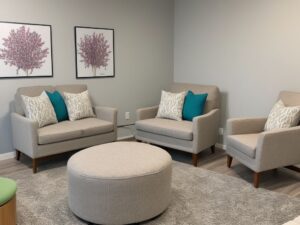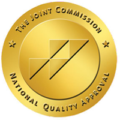Choosing an outpatient drug treatment in Los Angeles means seeking a specialized approach to addiction treatment that provides a flexible and convenient option for recovery. This form of treatment allows people to receive comprehensive care while maintaining their daily responsibilities and commitments. Outpatient drug treatment programs in Los Angeles offer several benefits for those seeking help for drug addiction, including flexibility, continued support and accountability, and a lower cost than inpatient treatment.
The importance of outpatient drug treatment programs lies in their personalized approach to treatment. Each individual receives a tailored treatment plan that addresses their needs and challenges. This includes targeted therapy and counseling and a holistic approach to recovery that considers addiction’s physical, mental, and emotional aspects.
If you are considering outpatient drug treatment in Los Angeles, you can expect a comprehensive assessment and evaluation process to determine the most effective treatment approach for you. This will be followed by developing an individualized treatment plan that includes therapeutic interventions and supportive group therapy sessions.
Choosing the right outpatient drug treatment program is crucial for a successful recovery. Factors to consider include the program’s accreditation and licenses, the quality of staff and treatment team, the availability of aftercare support, and the program’s success rates and testimonials.
Key takeaways:
- Focused outpatient drug treatment provides flexibility and convenience in the treatment schedule, allowing people to receive support while maintaining their daily routines.
- Outpatient treatment offers continued support and accountability outside of treatment sessions, increasing the chances of successful recovery from drug addiction.
- Outpatient drug treatment is a lower-cost alternative to inpatient treatment options, making it more accessible to people seeking help for drug addiction.
Trust in the Avedis Recovery Outpatient Drug Treatment Programs
Avedis Detox and Recovery understands the advantages of outpatient drug treatment in Los Angeles, California. Our treatment program is a reliable resource led by our founder and CEO. We know that recovery can be a challenging and uncomfortable journey. Therefore, we emphasize that recovery happens within the person, not just at the treatment facility. Our approach focuses on guiding clients with genuine care and compassion, helping them develop a humble heart, insightful mind, ethical motivation, and a comprehensive understanding of addiction.
The core of our story lies in the growth of each person who has joined our team. At Avedis, we prioritize personal improvement over physical buildings or luxury items. Unlike other facilities, we see goals differently and prioritize genuine recovery over distorted views. If clients only experience luxury and are being pampered during treatment, it becomes harder for them to implement the skills learned in real-life situations. Our focus is to help clients grow through individualized approaches driven by their desire, sacrifice, healthy ego, motivation, and authentic learning.
Transparency Regarding Outpatient Drug Treatment Programs as a Business
At Avedis Recovery, we openly discuss addiction treatment, addressing negative attitudes and what poor treatment entails. Our Program/Clinical Director engages in in-depth discussions with clients and staff. From the initial assessment and orientation to ongoing conversations, we acknowledge the unintended consequences of recovery. We are honest with our clients, providing information about the insurance process, the challenge of balancing healing with business aspects, and everything in between. Our clients value our transparency and provide us with valuable feedback. A defining feature of Avedis is our thorough examination of every aspect of the recovery world, allowing us to apply the most effective elements to initiate healing.
At Avedis, our focus goes beyond our client’s drug and alcohol use. We also explore how our culture contributes to addiction. Our goal is to find a healthy balance that enables us to navigate the world while being mindful of our addictive tendencies. We advocate for this philosophy and incorporate it into the Avedis Recovery clinical programs. We prioritize quality and transparency. Addiction cannot be limited to a narrow scope; it is a disease intertwined with human nature and permeating every aspect of our culture.
Addiction isn’t the same as a person’s personality or a failure of willpower. It’s a disease with characteristics and should be treated as such.
This blog will help you make informed choices on your path to recovery. Finding a treatment program that best suits their needs and goals. To learn more, call our admissions specialists at 833.514.0579 for a confidential assessment and to verify insurance.
Defining an Outpatient Drug Treatment Program
The outpatient drug treatment programs in Los Angeles at Avedis Recovery offer a dynamic approach toward addiction recovery. Let’s explore what sets this treatment model apart. This article provides an overview of outpatient treatment, highlighting its potential benefits. Discover the key features that make outpatient drug treatment effective, and find a pathway towards lasting recovery.
Outpatient drug treatment programs offer a flexible and convenient option for drug addiction recovery. Personalized treatment plans, holistic approaches, and a focus on maintaining daily responsibilities effectively support treatment while living at home. Choosing the right program and considering factors like accreditation, staff quality, and relapse prevention support can ensure a successful recovery and improved quality of life.
Outpatient drug treatment programs offer flexibility in scheduling, continued support, lower cost, personalized treatment, targeted therapy, and a holistic approach to recovery. They allow people to receive treatment while maintaining their daily responsibilities and are tailored to address their specific challenges and preferences.
Benefits of Outpatient Treatment for Drug Addiction
Discover the rewards of outpatient treatment for drug addiction in Los Angeles! Embracing flexibility and convenience in treatment schedules, continued support and accountability beyond sessions, and offering a cost-effective alternative to inpatient options, outpatient programs have shown remarkable success. With plans to address individual needs, it’s time to explore how outpatient treatment can bring lasting recovery and stability.
Flexibility and Convenience in Treatment Schedule

Outpatient drug treatment programs offer flexibility and convenience, allowing patients to choose sessions that suit their schedule. They provide diverse appointment options, convenient locations, and the ability to receive treatment while living at home. This makes them an attractive option for people seeking addiction recovery.
Outpatient drug treatment programs provide flexibility in scheduling, allowing patients to continue their daily responsibilities. Evening and weekend sessions accommodate different schedules. Treatment centers offer convenient locations, reducing travel time for patients. Patients can receive treatment while living at home, maintaining their familiar environment and support network. This option benefits anyone with strong family support or additional challenges in a residential setting. Outpatient programs enhance the chances of successful and sustainable recovery.
Support and Accountability Outside Treatment
Continued support and accountability outside of treatment sessions are essential for those in outpatient drug treatment, promoting long-term recovery. Therapist check-ins, support groups, accountability partners, access to helplines, and online resources are key factors in ensuring ongoing support and reinforcement of coping mechanisms.
Therapists connecting with patients outside of sessions ensures the implementation of strategies. Support groups provide a sense of community and guidance beyond therapy sessions.
Accountability partners boost motivation and provide support for recovery goals. Access to helplines allows them to seek immediate assistance. Online resources and tools serve as references and reminders of learned strategies.
Lower Cost Compared to Inpatient Treatment
Although inpatient treatment provides the highest level of care, it can be difficult to access due to cost. Outpatient recovery programs offer a more flexible and affordable option for those without insurance or unable to afford inpatient services.
Outpatient programs provide group and individual therapy sessions that meet patients’ needs. Treatment plans are based on their assessment and goals. The variety of recovery options allows people to find the best fit for their needs.
For those with long-term addiction, outpatient programs can be used as a support layer. It can be in addition to other forms of treatment, such as medication or following inpatient services. Outpatient programs also provide ongoing monitoring and support during aftercare, vital for continued recovery.
Choose Outpatient Drug Treatment Programs in Los Angeles
Outpatient drug treatment programs are effective for rehabilitation. They prioritize personalized approaches, including therapy, counseling, and holistic methods that promote mental wellness and behavioral treatments. Focusing on individual needs, these programs address specific challenges, offering comprehensive and tailored recovery. Experience evidence-based techniques that empower transformation and a healthier life.
Personalized Treatment Approach
Tailored outpatient drug treatment recognizes the uniqueness of each person’s addiction struggles. A personalized approach combines evidence-based therapies, counseling, and holistic methods by addressing specific challenges and circumstances. This promotes long-term recovery by enhancing coping skills and integrating mental wellness practices for enduring well-being.
Therapy to Address Specific Challenges
Targeted therapy and counseling are crucial in outpatient drug treatment, providing personalized support to address specific challenges. Therapeutic interventions like cognitive-behavioral therapy equip them with effective coping skills, while individualized counseling explores unique concerns. Support groups create a sense of community, targeting relapse prevention. Continuing care ensures ongoing support for long-term recovery.
A Holistic Approach to Recovery
Comprehensive outpatient drug treatment integrates mental wellness and behavioral treatments to address addiction holistically. This approach recognizes the multifaceted nature of addiction and provides personalized care tailored to individual needs. Therapy sessions nurture mental wellness and develop effective coping mechanisms, while behavioral treatments focus on modifying problematic behaviors. The goal is to promote healthier habits and enhance decision-making skills.
A holistic approach to recovery recognizes the significance of mental health and incorporates behavioral treatments to manage triggers, cravings, and stressors. This comprehensive approach, offered by outpatient drug treatment programs in Los Angeles, improves outcomes and increases the chances of long-term sobriety.
When selecting an outpatient drug treatment program, prioritizing a holistic approach to recovery is crucial. Look for evidence-based therapies, qualified professionals, and aftercare support. Consider success rates and testimonials for optimal progress and a better quality of life.
What to Expect in Outpatient Drug Treatment in Los Angeles
There are key things to understand when beginning an outpatient drug treatment program in Los Angeles. You’ll undergo a comprehensive assessment and evaluation. A personalized treatment plan will be created for you, including therapy based on effective methods. Group therapy will also be available to provide support from people with similar experiences. The aim is to concentrate on your recovery journey.
Assessment and Evaluation

A thorough assessment and evaluation are vital during outpatient drug treatment. Healthcare professionals gather key information about the person’s substance abuse history, mental health, and physical well-being. This assessment helps create a personalized treatment plan that addresses the individual’s unique needs.
Professionals use interviews and questions to gather information about drug use patterns and the impact of substance abuse on daily life. They also screen for co-occurring mental health disorders like anxiety or depression.
The assessment process aims to understand an individual’s situation and needs. Based on this assessment, healthcare professionals develop a personalized treatment plan that may include different therapies and group sessions. Assessments provide insights for targeted treatment strategies and guide the recovery journey.
Individualized Treatment Plan
Tailored outpatient drug treatment plans are designed to meet each client’s unique needs, improving the effectiveness of therapy and increasing the chances of successful recovery. The initial assessment is crucial in understanding the client’s situation and creating a personalized treatment plan based on their substance abuse history, mental health condition, and other contributing factors.
The treatment team uses assessment results to create a personalized plan that may involve evidence-based therapies to help overcome addiction. A comprehensive approach addresses overall well-being, including mental health and behavioral treatments. Outpatient drug treatment programs in Los Angeles provide the necessary tools and support for long-term recovery and improved quality of life.
Evidence-Based Therapies
Outpatient drug treatment programs use evidence-based therapies like cognitive-behavioral therapy (CBT) and group therapy. Individual counseling helps explore thoughts and experiences, while group therapy builds support and community. Psychoeducational groups provide knowledge about addiction and recovery. Holistic approaches like meditation and exercise promote well-being. When choosing a treatment program, consider evidence-based practices and qualified professionals. Seek a comprehensive approach with tailored therapies.
Supportive Group Therapy
Supportive group therapy in outpatient drug treatment is important. Peer support creates a safe space where people facing similar challenges can connect, feel understood, and feel less alone in their recovery. Openly sharing triumphs and struggles removes barriers and reduces the stigma of addiction. It fosters empathy and support.
Group therapy promotes responsibility and commitment to recovery. Active participation motivates people to stay on track and make positive changes. Hearing others’ stories provides valuable insights and coping strategies. It inspires and motivates members to overcome obstacles.
Group therapy teaches essential skills like communication, stress management, and relapse prevention. These skills help maintain sobriety and well-being. Peers provide validation and encouragement, boosting self-esteem and confidence in recovery. Being understood empowers and motivates them.
Choosing an Outpatient Drug Treatment Program in Los Angeles
When choosing the right outpatient drug treatment program in Los Angeles for you, it’s important to make an informed decision. In this section, we’ll discuss key aspects to consider, such as accreditation and licenses of the treatment center, quality of staff and treatment team, availability of aftercare support, and success rates. We’ll also provide testimonials from previous clients to help guide you toward the best possible outcomes on your path to recovery.
Accreditation and Licenses of the Treatment Center
When seeking outpatient drug treatment in LA, check the center’s accreditation and licenses to ensure safe, effective care.
Look for accredited treatment centers that meet high standards of care. Verify that the center has the necessary licenses to comply with local laws and regulations. Some centers may have specialized certifications in certain therapeutic modalities or programs, indicating expertise in specific areas of addiction recovery. Assess the qualifications of the treatment team, ensuring they are licensed and have appropriate credentials in relevant fields.
Verify a treatment center’s accreditation and licenses to ensure quality care. Contact regulatory authorities or independent accreditation organizations for verification. Seek recommendations from healthcare professionals or people undergoing treatment at credible and effective centers.
Quality of Staff and Treatment Team
Quality staff and treatment teams are crucial when finding an outpatient drug treatment program. Qualified professionals such as licensed therapists, counselors, and medical professionals are essential in providing comprehensive and evidence-based care. The availability of a multidisciplinary team is vital, as they can provide a holistic approach to recovery. It is important to consider the credentials and qualifications of the staff to ensure adherence to professional standards and ethical guidelines. Overall, the staff’s expertise, credentials, and experience significantly impact the program’s success rates, ensuring a commitment to full recovery and an improved quality of life.
Relapse Prevention
After outpatient drug treatment in LA, access to aftercare support is crucial for continued progress. It offers continued guidance, accountability, peer support, relapse prevention strategies, and a personalized approach. By incorporating aftercare support into a treatment plan, people can increase their chances of maintaining sobriety and achieving a better quality of life.
According to the Substance Abuse and Mental Health Services Administration (SAMHSA), people who engage in aftercare programs following treatment have a significantly higher chance of sustaining sobriety than those who do not.
Client Testimonials
When choosing an outpatient drug treatment program, consider success rates, testimonials, long-term recovery measures, peer support, and personalized treatment. Programs with high success rates, positive testimonials, long-term support, peer support groups or alumni networks, and individualized treatment plans are more likely to be effective. Researching these factors can help you make an informed decision.








